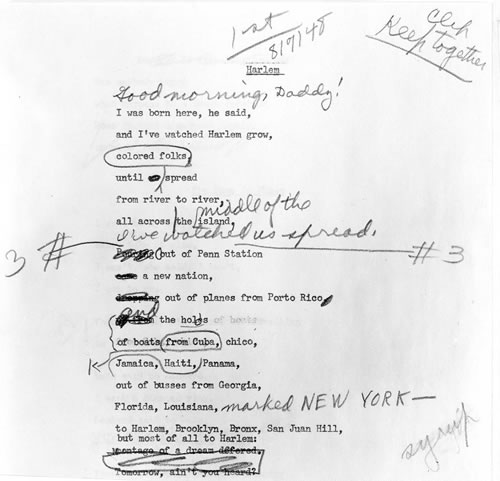James Baldwin: 1968
On August 19th, BAM screened two James Baldwin films. The first was a lecture/panel discussion. In the other, Baldwin narrates Harlem.
The first thing someone asked James Baldwin in 1968, as he stood in front of a group of radical West Indian students in London, was why do you use the word negro? We’re black.
Baldwin said, my mother called herself much worse names and she managed to raise dignified children. He said Harlem in the 30s were tough. He hid in the library. He kept his head down. He spent his days in quiet. Once, when his father couldn’t stand, he propped him on his shoulders and walked him home. When his father died, he missed him.
Then a white man stood up and said is there any place for me? in the black power movement? Some people laughed-- this large, gray-haired man with a strong accent. Dick Gregory, suave and seated next to Baldwin, said black isn’t a color, it’s an attitude. John Brown was blacker than lots of black people.
 Partial draft of “Harlem” with the Baldwin's notes.
Partial draft of “Harlem” with the Baldwin's notes.
Then the questions from the audience:
What was Baldwin’s place in queer culture?
(this isn’t about gay marraige)
Did he feel self-conscious on-screen because his father told him he was ugly?
(but he’s so charming)
Why isn’t the audience nodding?
(they're listening)
He wasn’t an effeminate faggot.
(no one was saying that as an insult)
What about his writing? How did his writing influence everyone else’s writing? How did you read the words I stand at the window of this great house and repeat it over and over again, scrawling hard on scratch paper. What did Baldwin do exactly for literature? Darryl says what good are roots if you can’t take them with you.
Listen to an exerpt from Another Country here.
Thumbnail image is from here.